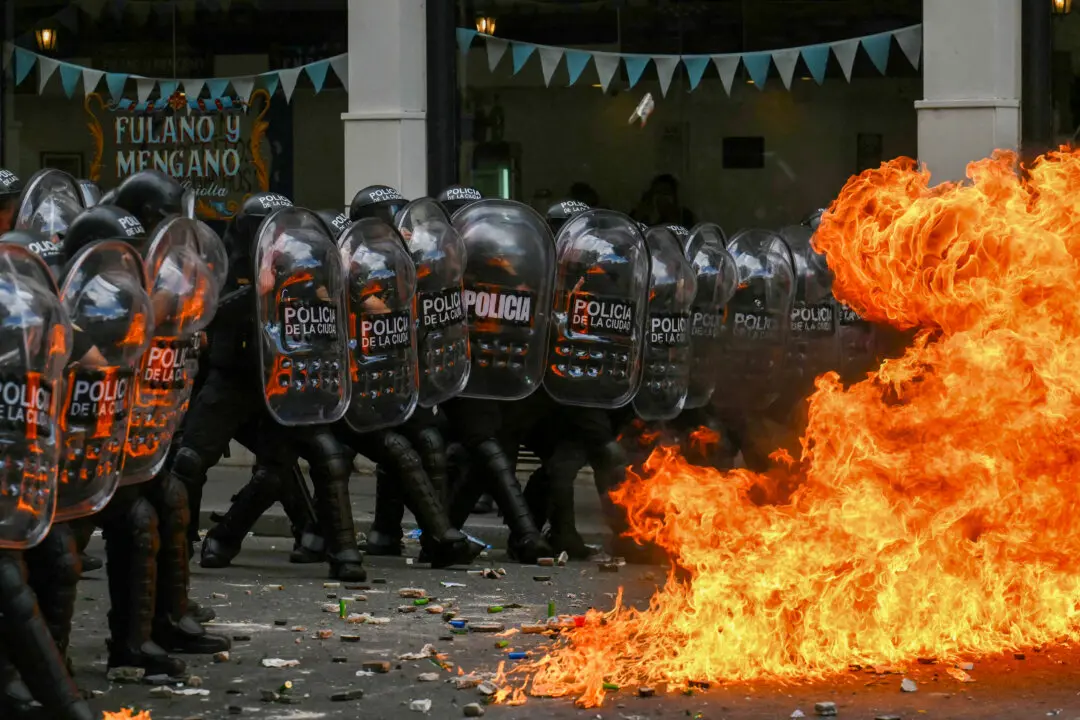Several top Chinese Communist Party (CCP) officials including General Secretary Hu Jintao and Zhou Yongkang, Director of the Chinese Ministry of Public Security, have given serious attention to the recent violent death of journalist Lan Cheng-Chang of the China Trade News . Hu and Zhou ordered a thorough investigation of the case. Under the CCP, Chinese officials have rarely requested such thorough investigations in cases where journalists have been attacked.
A local government spokesperson has stated that Lan was not a journalist. The spokesperson pointed out that the individuals responsible for the attack had been arrested. According to the spokesperson the investigation has been completed.
Inconsistent Statements
On January 9, Lan and another journalist from the China Trade News visited an unlicensed coal mine in Datong City, Shanxi Province. The journalists were beaten by a group of unidentified thugs. Lan suffered serious head injuries and died the day after the attack. The other journalist’s right leg had been fractured during the attack.
On January 17, The Epoch Times interviewed Gao Wen-Wen of the China Trade News . Gao confirmed the incident.
After the attack, an unidentified journalist from the China Trade News told The Epoch Times that Lan and his colleague had been attacked by thugs hired by the owner of the mine only after they had completed their interview. It was suggested that the attack was in retaliation for the interview which displeased the mine’s owner. This unidentified journalist said that the attack on Lan and his colleague had aroused anger among the journalists. Department heads of the newspaper, however, told reporters not to comment on the incident externally.
When asked about the possible results of the investigation, the unidentified journalist said, “The case is very clear. Both eyewitness and material evidence are available. Why do they need a further investigation? It must involve issues such as power, money and corrupt CCP officials.”
On January 23, Datong City Committee, Datong City News Center, and the city public security bureau reported that Lan had attempted to extort money from the owner of the mine. The report also stated that the mine owner had been arrested. On January 24, China News Service reported that General Secretary Hu had ordered a thorough investigation of the attack on Lan and his colleague. Six suspects were arrested along with a police officer with suspicious links to those arrested. Three suspects are still at large. On January 25, The Epoch Times conducted a phone interview with Datong County officials. One official stated that the case had been resolved and that Lan was a phony journalist. Seven thugs including their leader had been arrested. But none of them has anything to do with operation of the illegal mine. A staff member from the China Trade News in Beijing said that although Lan did not hold an official press card, he was officially employed by the newspaper as a journalist. Lan was beaten to death when he was on duty as a journalist. He did not have a press card because he just joined the China Trade News a few weeks earlier. Prior to that, he had worked as a journalist for a magazine.
Political affairs commentator Zeng Ning said, “The facts of the case are very clear. Journalists have the right to conduct investigative interviews. It is against the law to kill a journalist for doing their job.”
Reflecting the External Battle of the CCP
Zeng Ning thinks that although Hu’s attention to this case appears neutral, it is really a political signal. Hu’s attention to this case is a further extension of his policy of promoting civil liberties. Hu’s actions demonstrate that he is seeking to develop new political alliances and increased political support among people. The ultimate goal for Hu is to maintain the dictatorship of the CCP in China, which is also former General Secretary Jiang’s goal. The difference between Hu and Jiang is simply the methods and strategies.
Wu Fan, a U.S. based China affairs expert commented that Hu’s attention to this case may suggest that he is fighting with Li Changchun, who is a member of Central Political Bureau committee and is in charge of all media in China. By revealing the incorrect policies and actions conducted under Li’s direction as head of the media in China, Hu is hoping that others will criticize Li.
Zeng believes that the local CCP’s charge that Lan had conducted an illegal interview and had extorted the owner of mine could only have come from a much higher level in the CCP. Zeng suggests that such conflicting instructions and the arguments over the case all indicate political struggles in CCP’s central committee and infighting between top level and local CCP officials.




